The Argidius Foundation recently conducted an assessment of their portfolio of intermediaries and enterprises to understand more clearly whether and how business development services (BDS) are effective. While this research showed that BDS is effective on average, not all programs are similarly impactful. Rather, more successful programs had a common set of characteristics (or “key features”) that Argidius acronymized as “SCALE”. The purpose of the study is to inform donors and business development providers on how to maximize their impact.
The Argidius Foundation has asked ANDE to help disseminate SCALE in various parts of the emerging economies including Indonesia to provide insights and tools for the BDS providers to increase their effectiveness in supporting entrepreneurs.
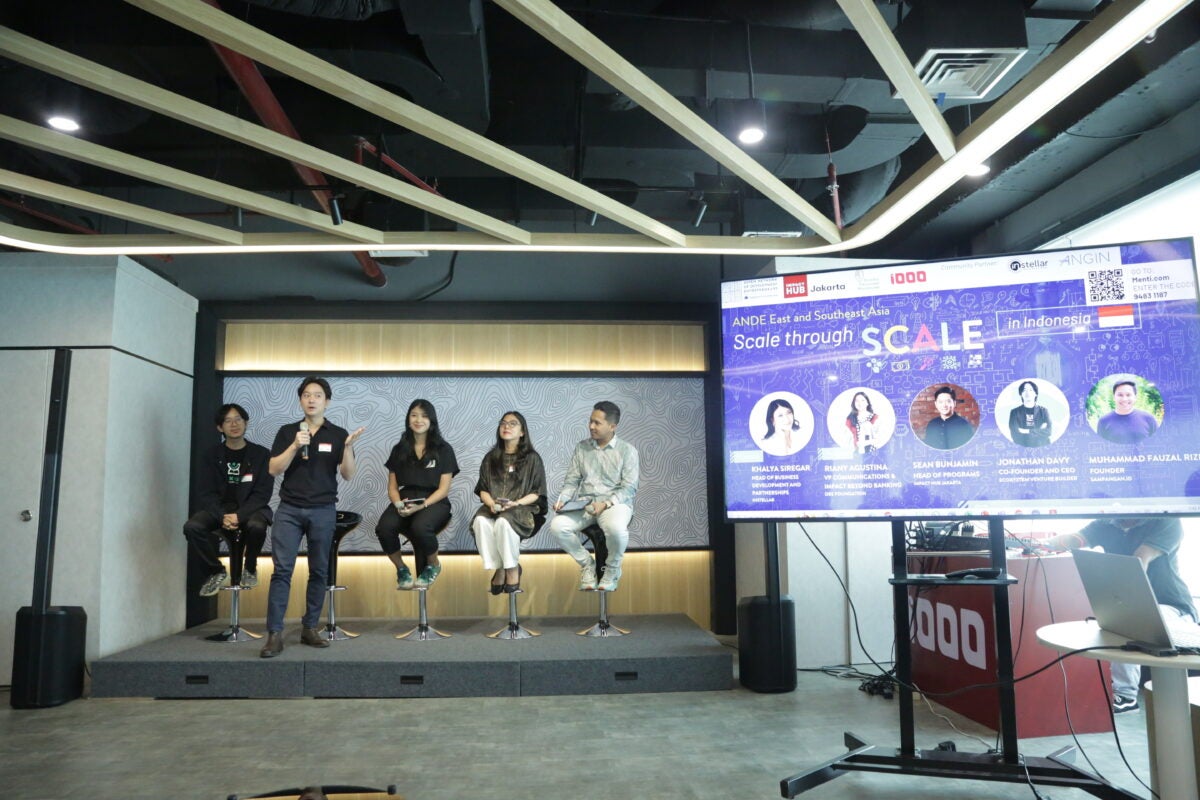
Following our successful “Scale through SCALE” events in Bangkok, Kuala Lumpur, Phnom Penh, and Manila, the ESEA team has co-hosted another workshop with Koalisi Ekonomi Membumi (KEM), Impact Hub Jakarta, and Komdigi in Jakarta, Indonesia on 24th October 2024.

We welcomed 45 participants including Entrepreneur Support Organizations (ESOs), Funders, and Entrepreneurs. The day started with a welcoming remark, a presentation of SCALE, a panel discussion moderated by Khalya Siregar, Head of Business Development and Partnerships of Instellar, and joined by Sean Bunjamin, Head of Programs of Impact Hub Jakarta, Riany Agustina, VP Communications & Impact Beyond Banking of DBS Foundation, and two entrepreneurs, Muhammad Fauzal Rizki, Founder of Sampangan.id, and Jonathan Davy, co-founder and CEO of Ecoxyztem Venture Builder.
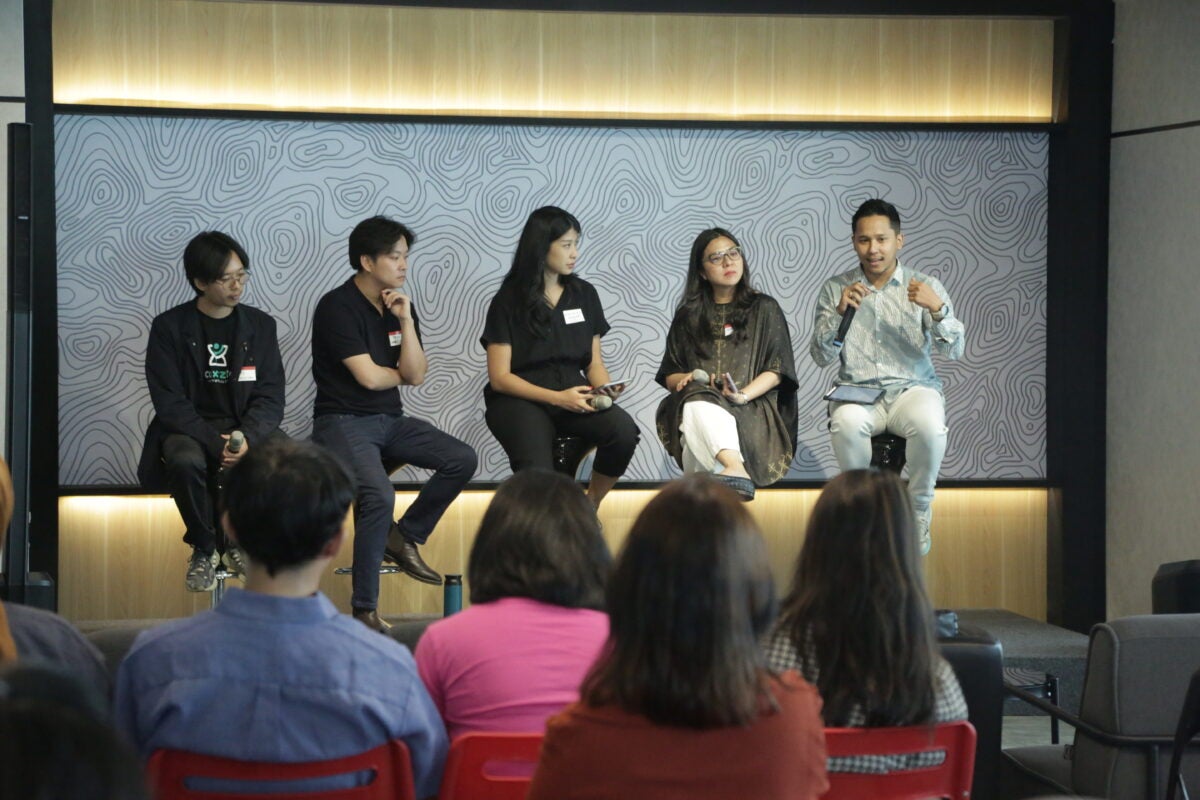
Then, participants were divided into five groups to encourage peer-to-peer learning using guiding questions from reflection tool in a world cafe style.
Participants have discussed questions related to SCALE and shared their current practices, challenges they found, and practical suggestions, including:
Key findings from breakout sessions:
S – Selecting the Right Enterprise
- Uses a multi-channel peer selection process, including past participant referrals, 1:1 outreach, community partnerships, and leveraging competitions.
- Segments participants by stage, using a diagnostic tool for effective grouping.
- Communicates offerings and expectations clearly through an initial agreement and an introduction to the SOP at the program’s start.
- Validates partnership value through the Grant Manager’s performance monitoring, a milestone plan (multistage assessment process), and impact reporting, aligning with specific goals and KPIs.
- Gathers enterprise feedback on the selection process through questionnaires, though some selection criteria remain non-negotiable.

C – Charging Enterprises Improve Performance
- Some ESOs mentioned that they provide a unique value proposition through a niche program focused on impact measurement and management, offering practical tools for participants’ growth and success. Some also emphasized global connections and investment opportunities.
- Free services are often perceived as low-value; charging for Business Development Services (BDS) can enhance perceived value.
-
- Context in Indonesia: Government traditionally funded training, making it challenging to shift mindsets towards paid services, though free offerings (without cash allowances) have gained some acceptance
-
- Pricing Strategy:
-
- Based on overall business costs and enterprise stage, with later-stage businesses more capable of paying.
- Recognizes that entrepreneurs invest their time in programs.
- Encourages BDS to adopt an entrepreneurial approach.
-
- Charging Models:
-
- Deposit Model: Peer-selected investment (e.g., Village Capital model) and equity-based charges.
- Sponsor Scholarships: Entrepreneurs pitch for scholarships, ensuring commitment and revenue for BDS, along with service charges for offerings like mentor access, focusing on mutually beneficial mentor relationships.
- Inclusive Pricing: Reduced rates for underserved groups.
- Building Reputation for Paid Services: Leverage visibility by associating with larger events, especially useful for newer BDS providers.
-
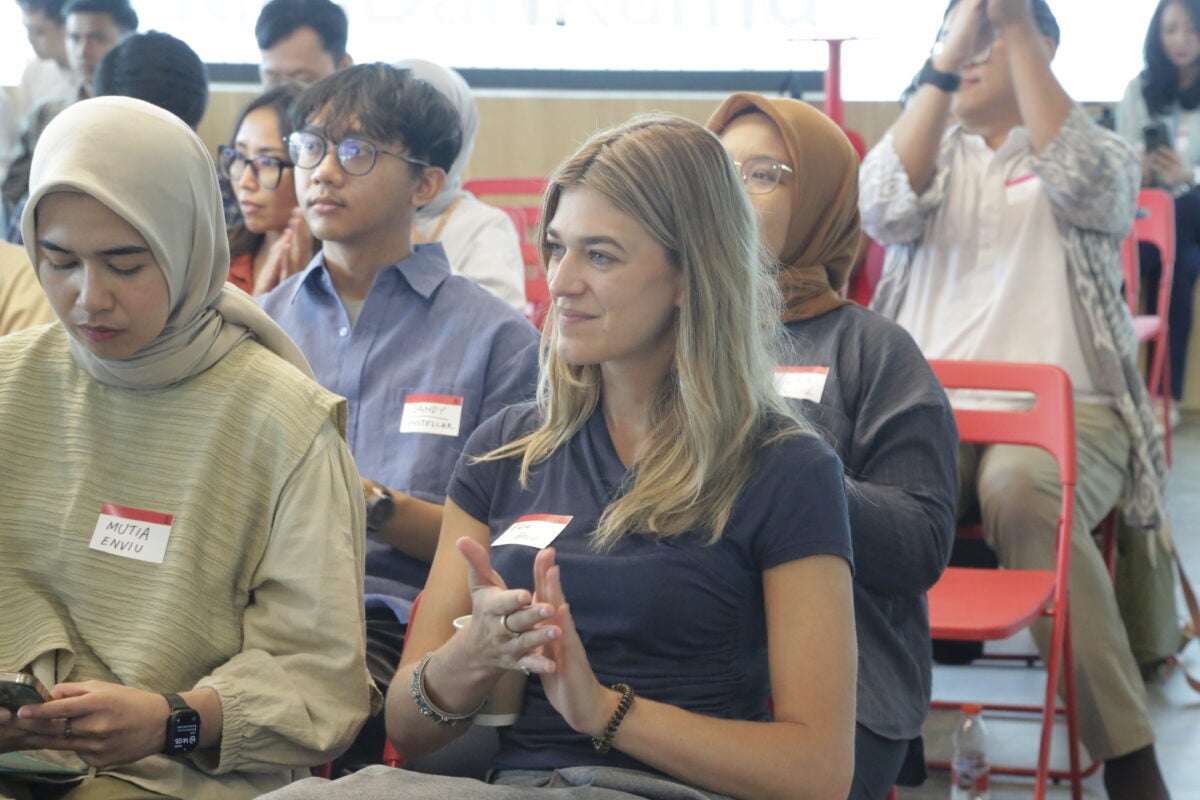
A – Address problems
- Entrepreneurs share failures when a safe, trusting environment is established.
-
- Trust is built through showing vulnerability and small, personalized group settings.
- Failure-sharing is encouraged intentionally to foster partnership and reduce isolation.
-
- To design a tailored support curriculum,
-
- Determine the readiness level of participants and create a curriculum that aligns with the midpoint of the identified readiness levels.
- Use surveys and interviews to identify participants’ challenges and map the curriculum based on identified problems
-
- Services for entrepreneurs:
-
- Prioritize Peer Learning: Focus on matchmaking and knowledge sharing between similar markets or regions. Facilitate organic peer learning through more in-person events.
- Collaborate with incubators and businesses to create a mentor pool for startups to choose from or for matchmaking.
- Facilitate organic peer learning through more in-person events.
-
- Collect feedback on a regular basis and utilize dynamic metrics to inform adjustments.
-
- Establish channels for entrepreneurs to discuss the program, prioritizing goals based on feedback.
-
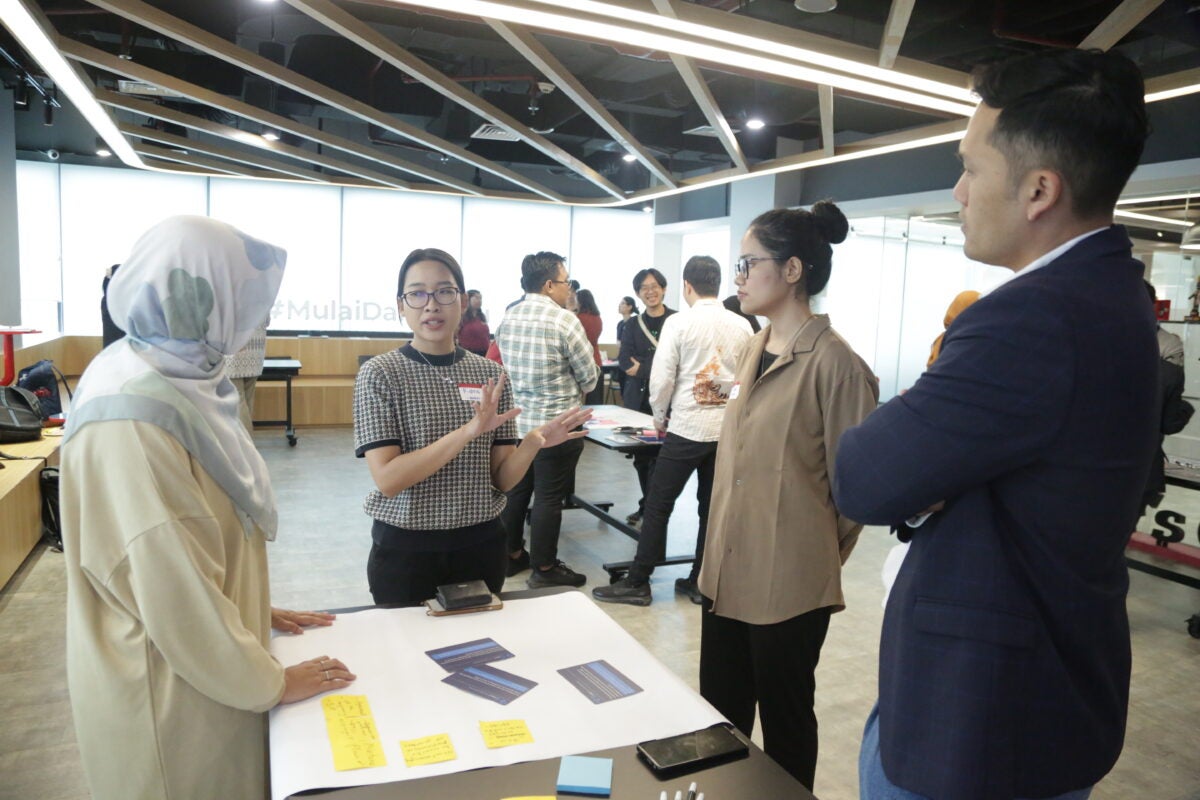
L – Learning by Evaluating Enterprise Performance
- Key KPIs: KPIs are primarily set by funder requirements. ESOs usually track revenue, business size, impact, business reach, and gender gap metrics.
- Progress Indicators: Monitor participant growth, from initial cohort members to becoming changemaker speakers. Measure deals closed during the program and follow-on deals over multiple years.
- Data Collection Process:
- Before: Gather baseline data through feasibility studies.
- During: Conduct session-based NPS surveys.
- Methods: Use questionnaires, surveys, and interviews.
- Challenges: Difficulty in obtaining feedback; overcome by diversifying collection methods.
- Building a personal-level relationship with entrepreneurs is essential and involves prioritizing understanding and accommodating their unique needs to foster trust and strengthen connections.

E – lead by Examples
- Clarity of Scope: Use a master document and maintain clear internal communication to define organizational activities and limitations.
- Revenue Streams: Generate additional revenue through short-term equity investments, aiming for exits within 3 years.
- Team Structure:
-
- Implement inclusive employment policies.
- Focus on capacity building for personal career development.
- Provide interns with meaningful learning experiences and special support.
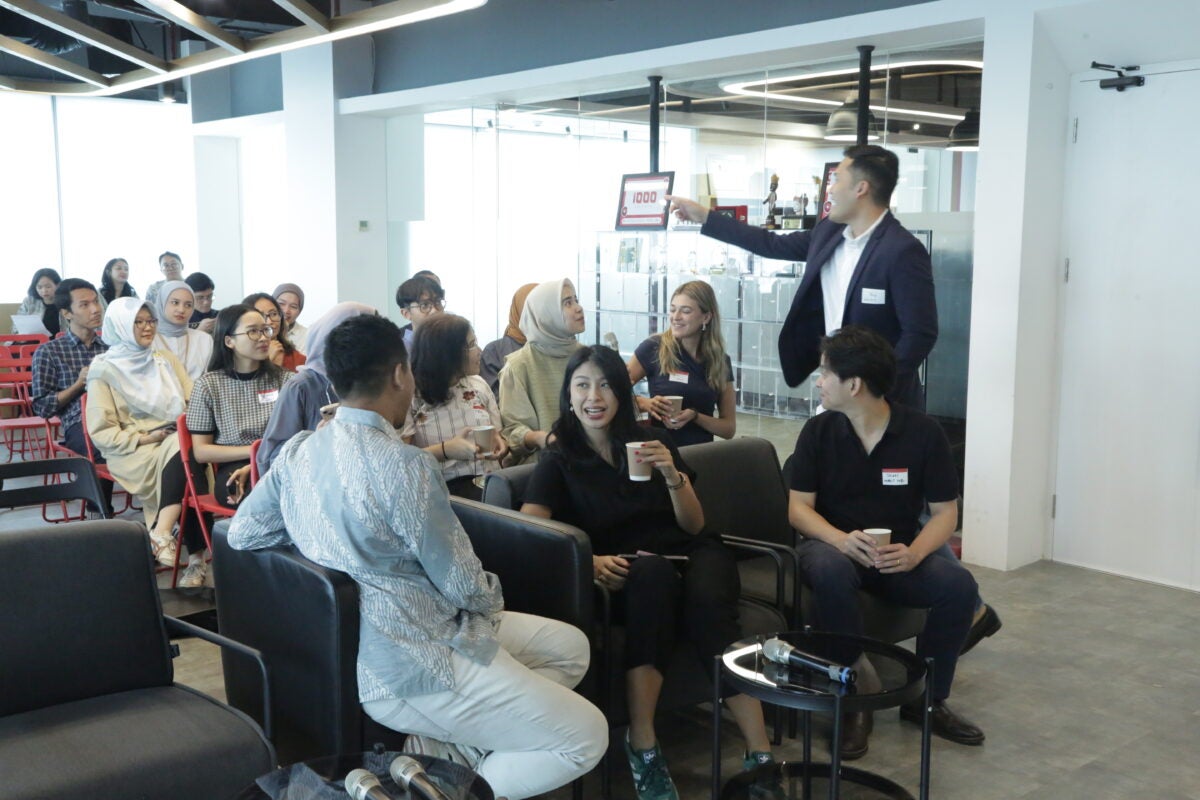
Participants were then introduced to a SCALE Diagnostic tool which is designed to help BDS providers assess how their programs and organizational practices are aligned with what works and identify areas of opportunity to improve. Also, funders could use this tool to better assess BDS providers in terms of what has been proven to be impactful.
What participants say
“Partnering on the SCALE workshop allowed us to contribute to a transformative initiative for the startup ecosystem. Together, we focused on ensuring that programs for entrepreneurs are not only impactful but also aligned with the real needs of businesses. This collaboration reflects our commitment to building a stronger, more resilient digital economy.”
Muhammad Faisal, 1000 Digital Startup
“What I like about SCALE is that it provides a useful framework that helps us take a step back, rethink our approach, and (in a structured way) explore how to make our program the most effective”
Adeline Permata, Investment Manager – NEX Ventures
